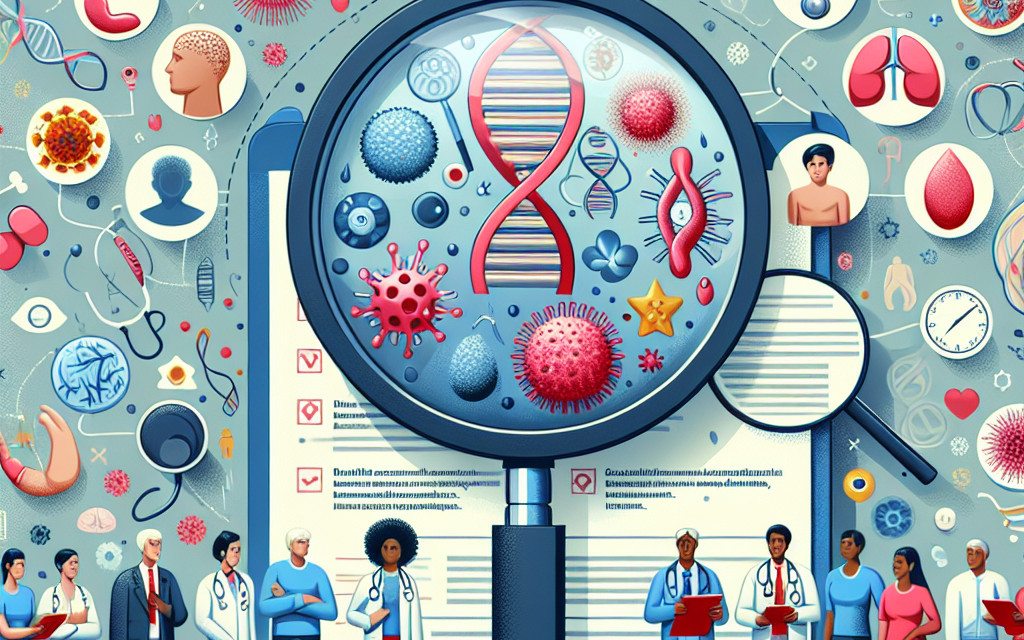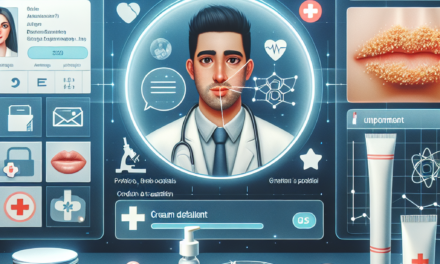Exploring the Causes, Risks, and Treatments of Health Conditions
Health conditions can range from mild ailments to severe diseases, affecting millions of people worldwide. Understanding the causes, risks, and treatments of these conditions is crucial for prevention and management. This article delves into various health conditions, exploring their underlying causes, associated risks, and available treatments. We will cover five significant health conditions: cardiovascular diseases, diabetes, mental health disorders, respiratory diseases, and cancer.
Cardiovascular Diseases
Cardiovascular diseases (CVD) encompass a range of conditions affecting the heart and blood vessels, including coronary artery disease, heart attacks, and stroke. They are among the leading causes of death globally, with the World Health Organization (WHO) estimating that CVDs account for approximately 32% of all deaths each year.
Causes of Cardiovascular Diseases
The causes of cardiovascular diseases are multifaceted, involving a combination of genetic, lifestyle, and environmental factors. Key contributors include:
- Unhealthy Diet: Diets high in saturated fats, trans fats, cholesterol, and sodium can lead to the buildup of plaque in arteries, increasing the risk of heart disease.
- Lack of Physical Activity: Sedentary lifestyles contribute to obesity and other risk factors for CVD.
- Smoking: Tobacco use is a significant risk factor, damaging blood vessels and reducing oxygen in the blood.
- Genetics: Family history of heart disease can increase an individual’s risk.
- Chronic Conditions: Conditions such as hypertension, diabetes, and high cholesterol can exacerbate the risk of developing CVD.
Risks Associated with Cardiovascular Diseases
Several risk factors can increase the likelihood of developing cardiovascular diseases. These include:
- Age: The risk of CVD increases with age, particularly for men over 45 and women over 55.
- Gender: Men are generally at a higher risk than women, although the risk for women increases after menopause.
- Obesity: Excess body weight is linked to high blood pressure, high cholesterol, and diabetes.
- Stress: Chronic stress may contribute to heart disease through unhealthy coping mechanisms like overeating or smoking.
Treatments for Cardiovascular Diseases
Treatment for cardiovascular diseases often involves a combination of lifestyle changes, medications, and sometimes surgical interventions. Common treatment options include:
- Lifestyle Modifications: Adopting a heart-healthy diet, engaging in regular physical activity, and quitting smoking can significantly reduce risk.
- Medications: Statins, beta-blockers, and anticoagulants are commonly prescribed to manage cholesterol levels, blood pressure, and prevent blood clots.
- Surgical Procedures: In severe cases, procedures such as angioplasty, stent placement, or coronary artery bypass grafting may be necessary.
In conclusion, cardiovascular diseases are a significant public health concern, but many risk factors are modifiable. By understanding the causes and implementing effective treatments, individuals can significantly reduce their risk of developing these conditions.
Diabetes
Diabetes is a chronic health condition that occurs when the body cannot effectively use insulin, leading to elevated blood sugar levels. The two main types are Type 1 diabetes, which is autoimmune, and Type 2 diabetes, which is often related to lifestyle factors. According to the International Diabetes Federation, approximately 537 million adults were living with diabetes in 2021, a number projected to rise significantly in the coming years.
Causes of Diabetes
The causes of diabetes vary between the two types:
- Type 1 Diabetes: This form is believed to be caused by an autoimmune reaction that destroys insulin-producing beta cells in the pancreas. Genetic factors and environmental triggers, such as viral infections, may play a role.
- Type 2 Diabetes: This type is primarily linked to lifestyle factors, including obesity, physical inactivity, and poor diet. Insulin resistance develops when the body’s cells become less responsive to insulin.
Risks Associated with Diabetes
Diabetes poses several risks, both immediate and long-term. Key risks include:
- Cardiovascular Disease: Individuals with diabetes are at a higher risk of heart disease and stroke.
- Nerve Damage: High blood sugar levels can lead to neuropathy, causing pain and loss of sensation.
- Kidney Damage: Diabetes can damage the kidneys over time, leading to kidney failure.
- Vision Problems: Diabetic retinopathy can result in vision loss and blindness.
Treatments for Diabetes
Managing diabetes involves a comprehensive approach that includes lifestyle changes and medical interventions:
- Dietary Changes: A balanced diet rich in whole grains, fruits, vegetables, and lean proteins can help manage blood sugar levels.
- Physical Activity: Regular exercise improves insulin sensitivity and helps maintain a healthy weight.
- Medications: Type 1 diabetes requires insulin therapy, while Type 2 may be managed with oral medications or insulin.
- Monitoring Blood Sugar: Regular monitoring helps individuals manage their condition effectively.
In summary, diabetes is a complex condition with significant health implications. Understanding its causes and risks can empower individuals to take proactive steps in managing their health.
Mental Health Disorders
Mental health disorders encompass a wide range of conditions that affect mood, thinking, and behavior. Common disorders include depression, anxiety, bipolar disorder, and schizophrenia. According to the WHO, approximately 1 in 4 people will experience a mental health issue at some point in their lives.
Causes of Mental Health Disorders
The causes of mental health disorders are complex and often involve a combination of genetic, biological, environmental, and psychological factors:
- Genetics: Family history of mental health disorders can increase the risk of developing similar conditions.
- Brain Chemistry: Imbalances in neurotransmitters can contribute to mood disorders.
- Trauma: Experiencing traumatic events can trigger mental health issues, particularly in vulnerable individuals.
- Substance Abuse: Drug and alcohol abuse can exacerbate or lead to mental health disorders.
Risks Associated with Mental Health Disorders
Mental health disorders can have profound effects on individuals and society. Key risks include:
- Suicide: Mental health disorders are a leading cause of suicide, with individuals experiencing severe depression or anxiety being at higher risk.
- Substance Abuse: Individuals may turn to drugs or alcohol as a coping mechanism, leading to addiction.
- Physical Health Issues: Mental health disorders can contribute to chronic physical health problems, such as heart disease and diabetes.
- Social Isolation: Stigma and discrimination can lead to social withdrawal and isolation.
Treatments for Mental Health Disorders
Treatment for mental health disorders typically involves a combination of therapy, medication, and lifestyle changes:
- Psychotherapy: Various forms of therapy, including cognitive-behavioral therapy (CBT) and dialectical behavior therapy (DBT), can help individuals manage their symptoms.
- Medications: Antidepressants, antipsychotics, and mood stabilizers are commonly prescribed to manage symptoms.
- Support Groups: Peer support can provide individuals with a sense of community and understanding.
- Lifestyle Changes: Regular exercise, a healthy diet, and mindfulness practices can improve overall mental well-being.
In conclusion, mental health disorders are prevalent and can significantly impact individuals’ lives. Understanding their causes and risks is essential for effective treatment and support.
Respiratory Diseases
Respiratory diseases affect the lungs and airways, leading to difficulty breathing and other complications. Common respiratory conditions include asthma, chronic obstructive pulmonary disease (COPD), and pneumonia. The WHO estimates that respiratory diseases account for approximately 4 million deaths annually.
Causes of Respiratory Diseases
The causes of respiratory diseases vary depending on the specific condition:
- Asthma: This chronic condition is often triggered by allergens, pollution, respiratory infections, and exercise.
- COPD: The primary cause is long-term exposure to irritants, particularly cigarette smoke and air pollution.
- Pneumonia: This infection can be caused by bacteria, viruses, or fungi, often following a cold or flu.
Risks Associated with Respiratory Diseases
Respiratory diseases can lead to various health risks, including:
- Respiratory Failure: Severe cases can lead to respiratory failure, requiring emergency medical intervention.
- Increased Risk of Infections: Individuals with respiratory diseases are more susceptible to infections like pneumonia.
- Reduced Quality of Life: Chronic respiratory conditions can limit physical activity and overall quality of life.
- Comorbidities: Respiratory diseases often coexist with other conditions, such as heart disease and diabetes.
Treatments for Respiratory Diseases
Treatment for respiratory diseases varies based on the specific condition but generally includes:
- Medications: Inhalers, bronchodilators, and corticosteroids are commonly used to manage symptoms.
- Oxygen Therapy: For severe cases, supplemental oxygen may be necessary to ensure adequate oxygen levels.
- Lifestyle Changes: Quitting smoking, avoiding allergens, and maintaining a healthy weight can improve respiratory health.
- Rehabilitation Programs: Pulmonary rehabilitation can help individuals with chronic respiratory diseases improve their quality of life.
In summary, respiratory diseases are a significant health concern that can lead to severe complications. Understanding their causes and risks is essential for effective management and treatment.
Cancer
Cancer is a group of diseases characterized by the uncontrolled growth and spread of abnormal cells. It can affect any part of the body and is one of the leading causes of death worldwide. The American Cancer Society estimates that there will be approximately 1.9 million new cancer cases diagnosed in the United States in 2021 alone.
Causes of Cancer
The causes of cancer are complex and multifactorial, including:
- Genetic Factors: Certain inherited genetic mutations can increase the risk of developing specific types of cancer.
- Environmental Exposures: Exposure to carcinogens such as tobacco smoke, radiation, and certain chemicals can increase cancer risk.
- Lifestyle Factors: Poor diet, physical inactivity, and obesity are linked to various cancers.
- Infections: Certain viruses and bacteria, such as human papillomavirus (HPV) and Helicobacter pylori, are associated with an increased risk of cancer.
Risks Associated with Cancer
Cancer poses numerous risks, including:
- Metastasis: Cancer cells can spread to other parts of the body, complicating treatment and prognosis.
- Comorbidities: Cancer patients often face additional health challenges, including infections and organ dysfunction.
- Psychosocial Impact: A cancer diagnosis can lead to anxiety, depression, and social isolation.
- Financial Burden: The cost of cancer treatment can be significant, leading to financial strain for patients and families.
Treatments for Cancer
Treatment for cancer typically involves a combination of therapies, including:
- Surgery: Surgical removal of tumors is often the first line of treatment for localized cancers.
- Chemotherapy: This systemic treatment uses drugs to kill cancer cells or stop their growth.
- Radiation Therapy: High-energy radiation is used to target and kill cancer cells.
- Immunotherapy: This innovative treatment harnesses the body’s immune system to fight cancer.
In conclusion, cancer is a complex disease with various causes and significant health implications. Understanding its risks and treatment options is essential for patients and healthcare providers alike.
Conclusion
Health conditions such as cardiovascular diseases, diabetes, mental health disorders, respiratory diseases, and cancer represent significant challenges to public health. Understanding the causes, risks, and treatments associated with these conditions is crucial for effective prevention and management. By adopting healthier lifestyles, seeking timely medical intervention, and supporting mental well-being, individuals can significantly improve their health outcomes. As research continues to evolve, it is essential to stay informed about the latest developments in treatment and prevention strategies to combat these prevalent health issues.





